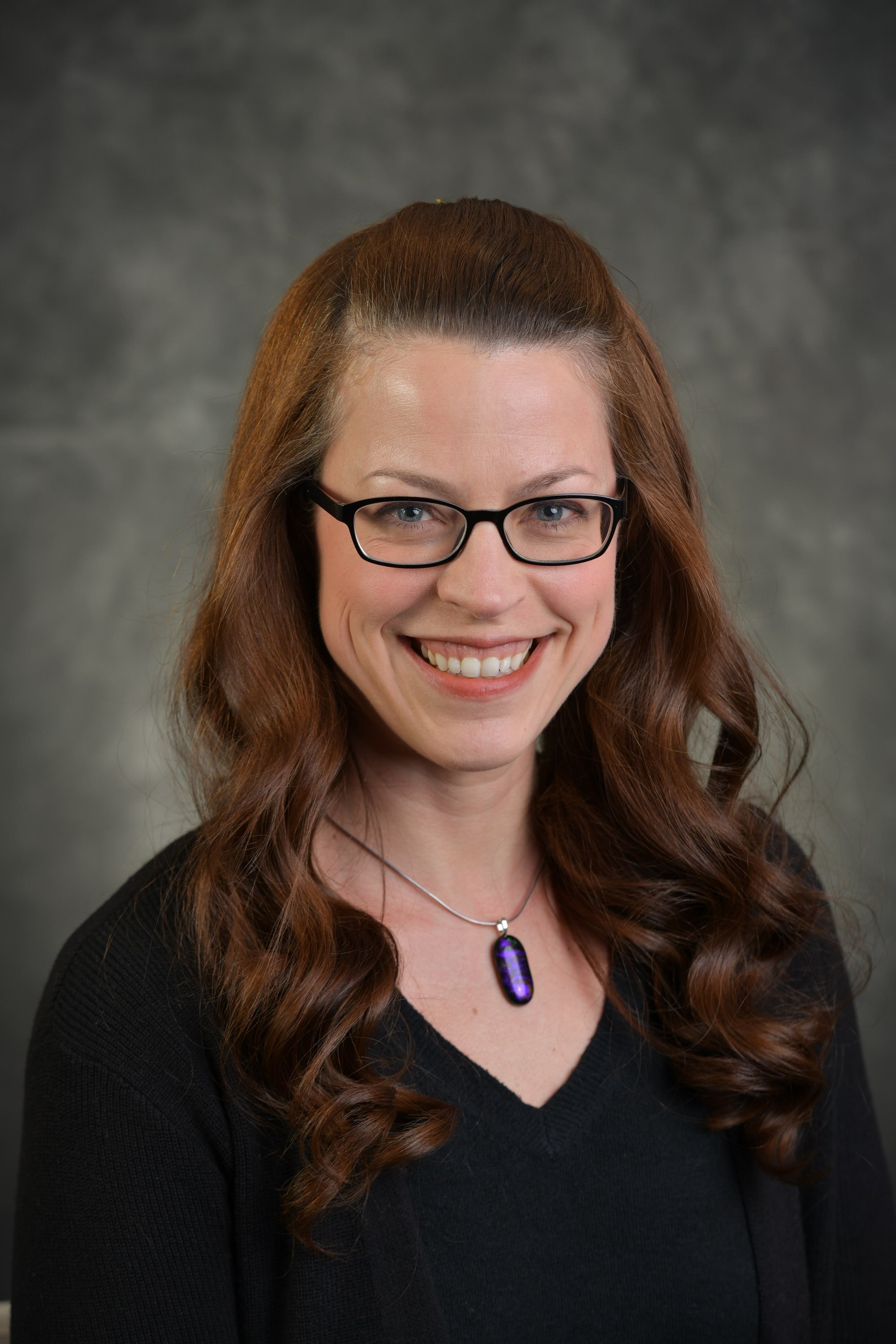I was Unemployed in Des Moines for several months before we decided (myself and my husband) that I would become a Free Agent  (independent professional). It wasn’t an easy decision to stop looking for a J.O.B. I actually kept my ears open for job opportunities for the first four months of being a Free Agent.
(independent professional). It wasn’t an easy decision to stop looking for a J.O.B. I actually kept my ears open for job opportunities for the first four months of being a Free Agent.
For us, the decision to become a Free Agent didn’t hinge so much on finances – which is a HUGE deciding factor for a lot of people. When you work for yourself, sometimes the path to stable income can be a rocky and uneven one.
Read the Full Post
Last week I wrote about the financial hurdles associated with being a Free Agent (independent professional). Why would anyone want to work for themselves?
- Diverse Schedule – My days are never the same. I don’t get up and drive to work, stay there for 8 hours and then drive home; I may have some “work-from-home” days where I don’t have any appointments I have to go to. There are other days where I hit every coffee shop in town for appointments and networking. Some people would see this as a disadvantage, however – they may enjoy sitting in a cube for 8 hours – not me…
- Freedom – To make decisions. I can choose to work today or not. I can choose if I want to reinvent a certain service offering and how. I can attend an all-day professional development conference without feeling guilty about it (or having an employer who won’t allow it). Do you have this freedom in your job?
Read the Full Post
Seth Godin is one of my favorite authors. Tribes, the first business book I read after college, inspired me to become a leader; so I thought I’d  give one of his earlier books, Free Prize Inside a try.
give one of his earlier books, Free Prize Inside a try.
Free Prize Inside is divided into three sections:
- Why You Need a Free Prize
- Selling the Idea
- Creating the Free Prize
Seth argues that organizations need to be remarkable in order to survive; innovation is cheaper than advertising. The “free prize” is a soft innovation. Everybody within an organization can be champions of soft innovations which are the “clever, insightful, useful small ideas that just about anyone in an organization can think up.”
Read the Full Post
I’ve always been interested in the ethnic roots of wherever I happen to be. I was born outside of St. Louis, Missouri and then moved to Suamico, Wisconsin, Sarasota, Florida, Muscatine, Iowa, Waverly, Iowa (for college), Cologne, Germany and 12 years ago, I landed in Des Moines, Iowa.
My roots are VERY German. My ancestors arrived, mostly from what is currently Alsace region of France (which was formerly Germany), just prior to the American Civil War. While I haven’t done extensive genealogical research on my family, oral histories have been passed down through the generations.

I picked up Iowa’s Ethnic Roots at a book sale earlier this year. Published in 1993, it’s a collection of papers written by the Presidential Scholars of the University of Northern Iowa. Each paper focuses on a different ethnic group that had a hand in shaping Iowa’s future. Czech, Danish, Norwegian, Scottish, German, Welsh and Irish. What’s great is that each paper tells the story of real people who came to Iowa in the context of our State’s history.
Does your family have ethnic ties overseas?
The second Tuesday of every month from 7:15-8:30am, the Euclid Hy-Vee hosts a networking event with FREE breakfast. They’ve been doing this for three years and I’ve been attending for about six months. Great networking group. It’s now affiliated with the Des Moines East South Chambers. Attendees share their 30-second commercial with the group followed by a program.
Today, the East High School Bell Ringers put on a short program. Below are a few photos and videos of their performance:
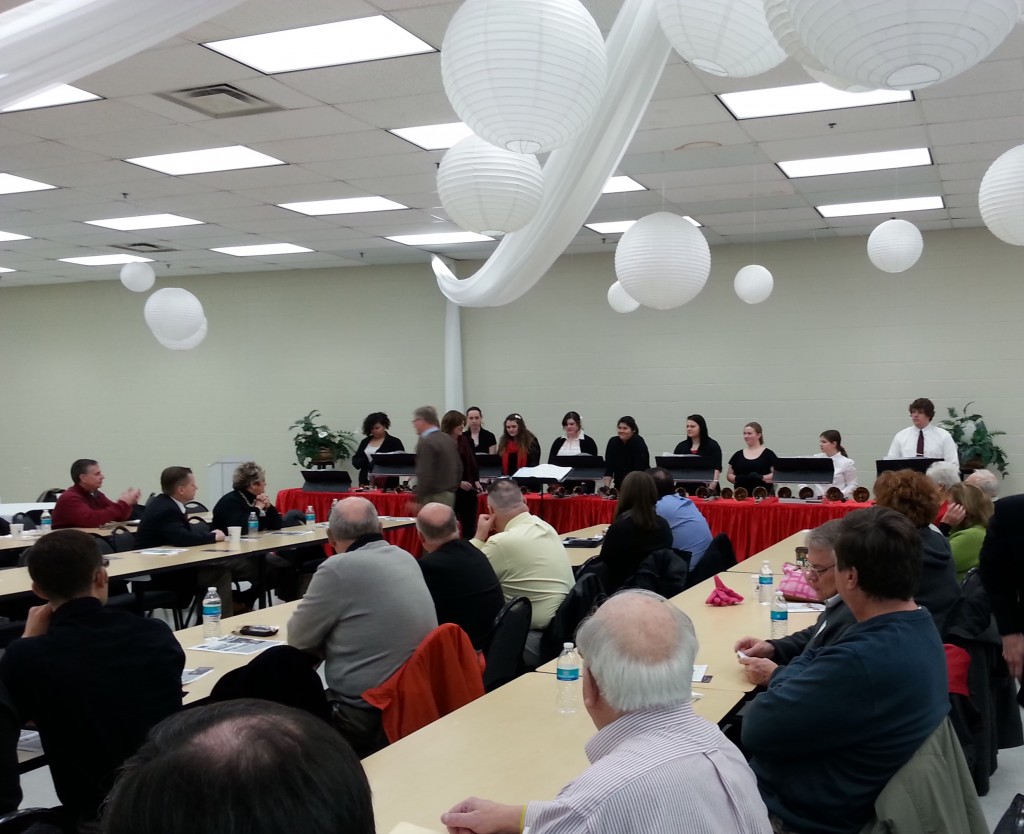
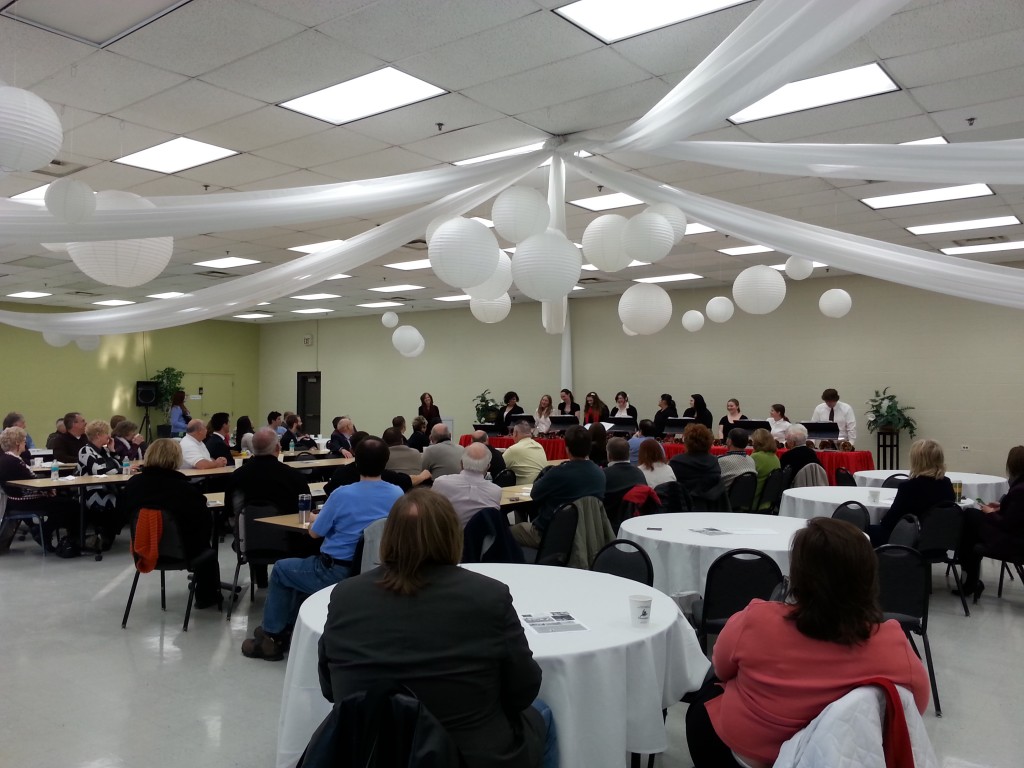
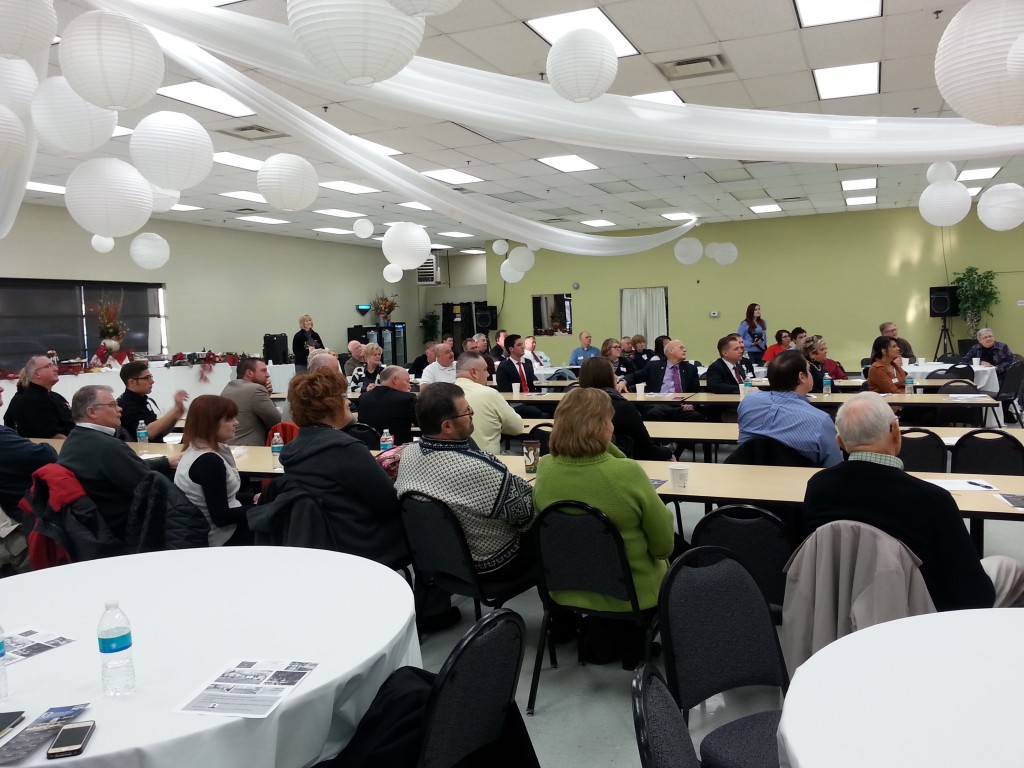
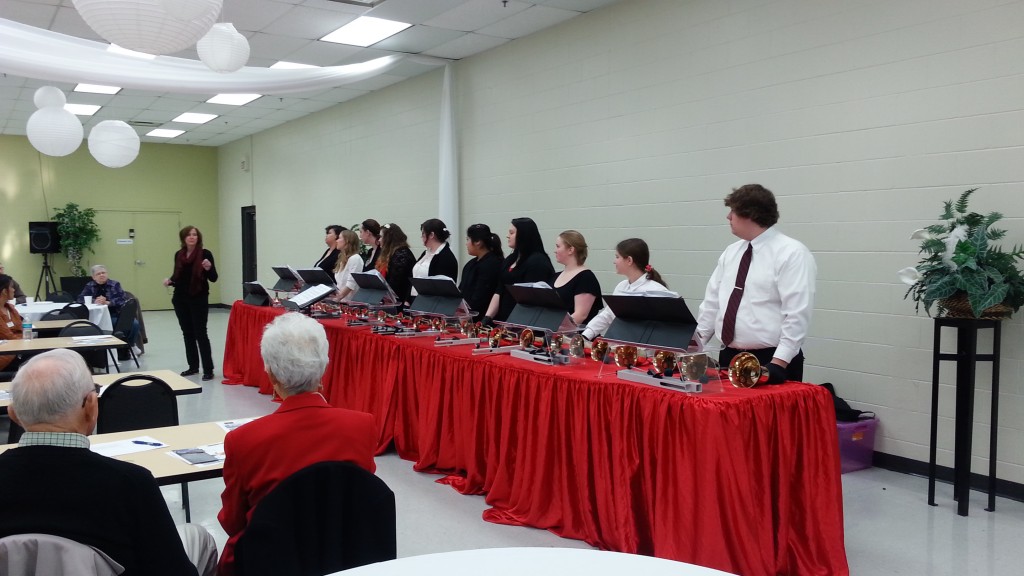
I’m so glad TEDx was has an established presence in Des Moines. Whenever I get a chance to attend one of their events, I clear my calendar!
 TED is a global set of conferences owned by the private non-profit Sapling Foundation, under the slogan “ideas worth spreading”. TED was founded in 1984 as a one-off event. The annual conference began in 1990, in Monterey, California. Wikipedia
TED is a global set of conferences owned by the private non-profit Sapling Foundation, under the slogan “ideas worth spreading”. TED was founded in 1984 as a one-off event. The annual conference began in 1990, in Monterey, California. Wikipedia
Created in the spirit of TED’s mission, “ideas worth spreading,” the TEDx program is designed to give communities, organizations and individuals the opportunity to stimulate dialogue through TED-like experiences at the local level. TEDx events are fully planned and coordinated independently, on a community-by-community basis. TEDx
Our local events are usually a combination of local speakers and videos of past TED talks. Last week’s TEDx Des Moines Women event attempted to LIVE STREAM talks over the lunch hour, but had some difficulties. Instead, they had local female leaders introduce their favorite TED talks which we watched together as an audience. Here’s what we watched in case you couldn’t attend:
“If I should have a daughter, instead of Mom, she’s gonna call me Point B … ” began spoken word poet Sarah Kay, in a talk that inspired two standing ovations at TED2011. She tells the story of her metamorphosis — from a wide-eyed teenager soaking in verse at New York’s Bowery Poetry Club to a teacher connecting kids with the power of self-expression through Project V.O.I.C.E. — and gives two breathtaking performances of “B” and “Hiroshima.”
Advertising adds value to a product by changing our perception, rather than the product itself. Rory Sutherland makes the daring assertion that a change in perceived value can be just as satisfying as what we consider “real” value — and his conclusion has interesting consequences for how we look at life.
Brené Brown studies human connection — our ability to empathize, belong, love. In a poignant, funny talk, she shares a deep insight from her research, one that sent her on a personal quest to know herself as well as to understand humanity. A talk to share.
What’s your favorite TED Talk?
We are living in a time where customers have the most control over their purchase decision-making process. They have more choices, the know more about the products and customer-loyalty can be gained or lost with one transaction.
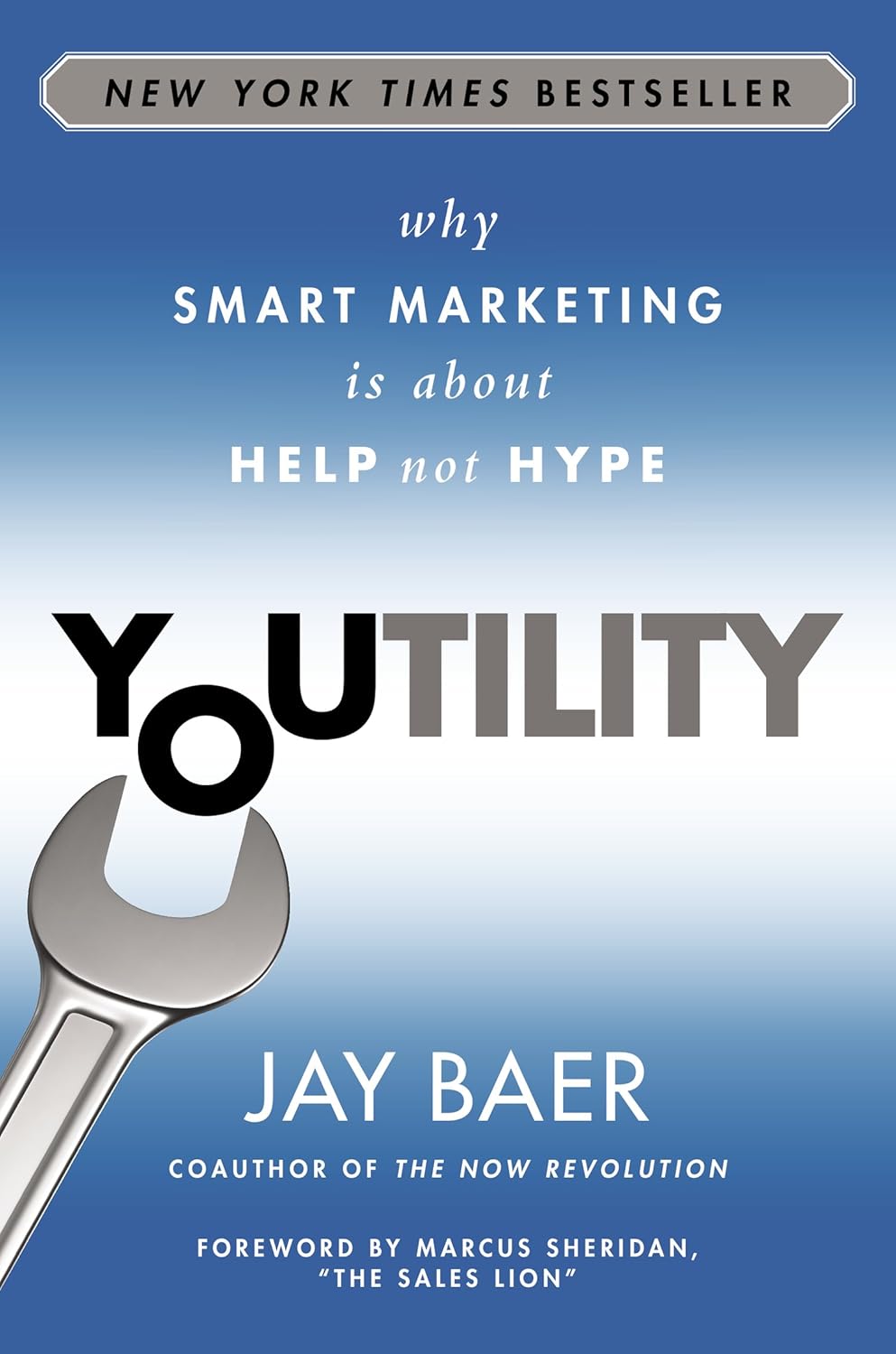
According to Jay Baer, “Instead of marketing that’s needed by companies, Youtility is marketing that’s wanted by customers. Youtility is massively useful information, provided for free, that creates long-term trust and kinship between your company and your customers.”
Jay Baer’s latest book focuses on “friend of mine” instead of “top of mind” marketing. Recognizing that while it’s important to be the first business a customer thinks of when they have a need, it’s even more important to be that business that has an established relationship with their customer. Whether they need you or not. Just be helpful.
I really enjoy reading books that offer a theory and then share examples of the theory in practice. And that’s exactly what Jay Baer does. It helps me think about Clients I work with and ways to apply these tactics.
How do you provide your prospects/customers with useful information geared towards creating a long-lasting relationship?

(independent professional). It wasn’t an easy decision to stop looking for a J.O.B. I actually kept my ears open for job opportunities for the first four months of being a Free Agent.
 give one of his earlier books, Free Prize Inside a try.
give one of his earlier books, Free Prize Inside a try.









